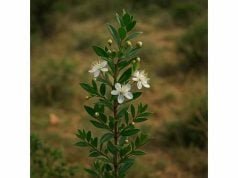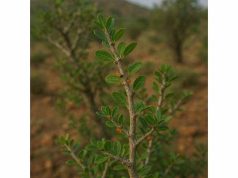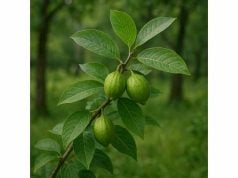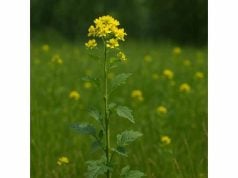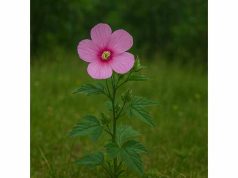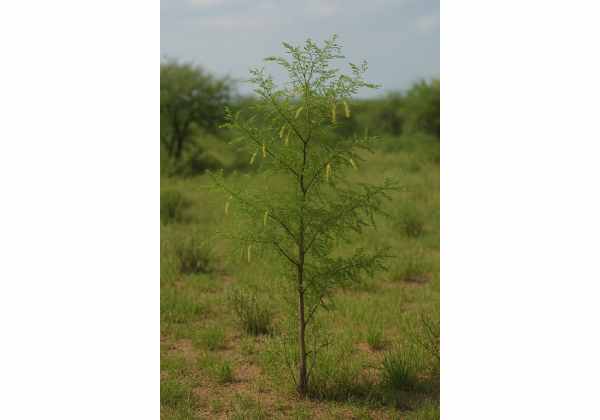
Mesquite is a hardy, drought-tolerant tree native to arid regions of North and South America, renowned for its versatile uses and remarkable health-promoting properties. This natural resource is prized for its nutrient-rich pods, which serve as a gluten-free flour alternative, and its wood, famed for imparting a distinctive smoky flavor when used in grilling. Rich in phenolic compounds, flavonoids, and antioxidants, mesquite offers benefits ranging from improved digestion and glycemic control to anti-inflammatory and antimicrobial effects. Traditionally incorporated into culinary and medicinal practices, mesquite continues to gain recognition in modern holistic wellness for its nutritional profile and therapeutic potential.
Table of Contents
- Botanical Profile and Characteristics
- Chemical Constituents and Active Ingredients
- Health Advantages and Nutritional Properties
- Practical Uses and Safety Considerations
- Research Insights and Scientific Evidence
- FAQ
Botanical Profile and Characteristics
Mesquite trees, belonging to the genus Prosopis in the family Fabaceae, are emblematic of arid and semi-arid regions. These resilient trees flourish in harsh, sun-baked landscapes across the southwestern United States, Mexico, and parts of South America. Adapted to survive in extreme drought conditions, mesquite trees develop extensive root systems that allow them to tap deep underground water reserves. This adaptation not only contributes to their longevity but also plays a crucial role in soil stabilization and nutrient cycling in fragile ecosystems.
The typical mesquite tree exhibits a gnarled trunk with a sprawling, open canopy. Its compound leaves are divided into small, oval leaflets that are adapted to reduce water loss, while the tree’s thorns serve as a natural defense against herbivores. One of the most distinctive features of mesquite is its long, slender seed pods, which ripen to a dark brown color. These pods have been utilized for centuries by indigenous peoples as a food source and are known for their sweet, nutty flavor. Ground into a fine flour, mesquite pod flour is a popular ingredient in gluten-free baking, lending both nutrition and a subtle, caramel-like taste to recipes.
Mesquite trees are not only valued for their culinary applications; their wood is highly prized for its density, longevity, and ability to impart a unique smoky aroma when used for grilling or smoking foods. The wood’s durability has made it a favorite for crafting furniture and tools in traditional communities, while modern chefs and barbecue enthusiasts seek out mesquite wood chips to elevate the flavor profile of grilled meats and vegetables.
In addition to its practical uses, mesquite plays an important ecological role. The tree’s deep-rooting system helps to prevent soil erosion, while its ability to fix nitrogen enhances soil fertility, promoting the growth of surrounding vegetation. This symbiotic relationship with the environment has led to mesquite being used in reforestation and land reclamation projects, particularly in areas that have suffered from overgrazing or desertification.
The historical significance of mesquite is evident in the rich tapestry of cultural traditions among Native American tribes. These communities have long utilized mesquite in various forms—whether as a nutritional supplement in the form of pod flour, as a source of medicinal remedies, or as a material for crafting tools and shelter. The versatility of mesquite is a testament to its enduring value as a natural resource, bridging the gap between ancient wisdom and modern sustainability practices.
Modern botanical studies continue to explore the adaptive features of mesquite, examining its genetic diversity and resilience. Researchers have documented variations among different species and cultivars, which can influence the chemical composition of the pods and wood. This diversity not only impacts flavor and nutritional content but also determines the efficacy of mesquite in various therapeutic applications. As interest in natural, plant-based remedies grows, mesquite is increasingly recognized for its dual role as both a food and a medicinal resource.
Moreover, mesquite’s robust profile makes it an attractive candidate for sustainable agriculture. Its ability to thrive in low-nutrient soils with minimal water requirements positions it as a key player in agroforestry systems. Farmers are exploring mesquite’s potential to improve land use efficiency and support biodiversity in arid regions, thereby contributing to both environmental conservation and economic sustainability.
In summary, the botanical profile and characteristics of mesquite underscore its status as a multifaceted tree with a profound impact on both ecosystems and human culture. Its resilience, diverse applications, and nutritional benefits make mesquite a true treasure of arid landscapes, offering solutions for food security, sustainable agriculture, and natural health remedies.
Chemical Constituents and Active Ingredients
The health-promoting properties of mesquite are rooted in its rich phytochemical composition. A closer examination of its chemical constituents reveals a complex profile of bioactive compounds that work synergistically to offer a range of therapeutic benefits. Below is an exploration of the key active ingredients present in mesquite:
- Phenolic Compounds:
Mesquite pods are particularly rich in phenolic compounds, which include a variety of antioxidants. These compounds help to neutralize free radicals, thereby protecting cells from oxidative stress. Phenolics contribute to the anti-inflammatory, anti-carcinogenic, and cardioprotective properties of mesquite, making it a valuable dietary addition for overall health. - Flavonoids:
A diverse group of plant metabolites, flavonoids are abundant in mesquite and are known for their potent antioxidant activity. Compounds such as quercetin, kaempferol, and catechins are instrumental in reducing inflammation, supporting the immune system, and potentially lowering the risk of chronic diseases. Their ability to modulate cellular signaling pathways is key to mesquite’s therapeutic effects. - Tannins:
Tannins are astringent compounds that contribute to the antimicrobial and digestive properties of mesquite. By binding to proteins, tannins can help reduce inflammation and improve gut health, making them beneficial in the management of gastrointestinal disorders. Additionally, tannins have been associated with improved wound healing and skin regeneration. - Saponins:
Present in modest amounts, saponins are known for their ability to enhance immune function and reduce cholesterol levels. These compounds can support metabolic health by aiding in the regulation of blood sugar and lipid profiles. Their surfactant properties also contribute to the emulsifying qualities of mesquite extracts, which are beneficial in various cosmetic formulations. - Dietary Fiber:
Mesquite pods are an excellent source of soluble and insoluble dietary fiber. This high fiber content aids in digestion by promoting regular bowel movements, regulating blood sugar levels, and supporting a healthy gut microbiome. Fiber also contributes to a feeling of fullness, which can be helpful in weight management and metabolic health. - Minerals and Vitamins:
Mesquite is a natural reservoir of essential minerals such as calcium, magnesium, potassium, and iron, along with vitamins like vitamin A, B-complex, and C. These micronutrients are vital for maintaining various bodily functions, including bone health, energy metabolism, and immune support. The balanced nutritional profile of mesquite reinforces its role as both a food and a medicinal ingredient.
Advanced analytical methods, including high-performance liquid chromatography (HPLC) and gas chromatography-mass spectrometry (GC-MS), have been employed to identify and quantify these compounds in mesquite. The variability in chemical composition can be influenced by environmental factors such as soil type, climate, and harvesting time. This natural variability underscores the importance of standardized processing techniques to ensure that mesquite-derived products maintain consistent quality and efficacy.
The synergy among these bioactive constituents is central to mesquite’s broad-spectrum health benefits. The combined antioxidant, anti-inflammatory, and antimicrobial actions of phenolic compounds, flavonoids, and tannins create a multifaceted defense mechanism against oxidative stress and inflammation. This holistic chemical profile not only supports cellular health but also contributes to the overall therapeutic potential of mesquite in the prevention and management of various chronic conditions.
Ongoing research into the chemical constituents of mesquite continues to reveal new insights into its mechanisms of action. By isolating and studying these compounds individually, scientists are developing a deeper understanding of how mesquite exerts its beneficial effects. This research is paving the way for the development of innovative mesquite-based supplements and functional foods that harness the full spectrum of its bioactive properties.
Health Advantages and Nutritional Properties
Mesquite offers an impressive array of health advantages, largely due to its rich nutritional profile and potent bioactive compounds. The integration of mesquite into the diet can yield a number of benefits that support both general health and the management of specific conditions.
One of the most notable benefits of mesquite is its powerful antioxidant capacity. The abundance of phenolic compounds and flavonoids in mesquite acts to scavenge free radicals, reducing oxidative stress that can lead to cellular damage and chronic diseases. This antioxidant action is particularly important in preventing cardiovascular issues, lowering the risk of cancer, and mitigating age-related degeneration.
In addition to its antioxidant properties, mesquite plays a significant role in digestive health. Its high dietary fiber content aids in regulating bowel movements, promoting a healthy digestive tract, and stabilizing blood sugar levels. The soluble fiber in mesquite slows the absorption of sugars, which can help in managing diabetes and reducing the risk of metabolic syndrome. Moreover, the fiber contributes to a prolonged feeling of fullness, assisting in weight management and reducing overall caloric intake.
Mesquite also exhibits anti-inflammatory properties, which are beneficial for individuals suffering from inflammatory conditions such as arthritis or inflammatory bowel disease. The synergistic effects of its polyphenols and tannins help to lower systemic inflammation, providing relief from chronic pain and swelling. This anti-inflammatory action is complemented by its antimicrobial properties, which can aid in protecting the body from infections and promoting a healthy immune system.
The nutritional benefits of mesquite extend to its rich mineral content. Essential minerals such as calcium, magnesium, and potassium contribute to bone health, muscle function, and cardiovascular stability. The presence of iron and vitamins supports energy metabolism and the overall maintenance of a robust immune system. Together, these nutrients help to create a balanced diet that fosters long-term health and vitality.
For athletes and physically active individuals, mesquite’s nutritional profile offers a natural source of sustained energy. The slow-releasing carbohydrates found in mesquite pods provide a steady supply of fuel, making it an ideal ingredient for pre- or post-workout snacks. Additionally, the protein content in mesquite contributes to muscle repair and recovery, further enhancing its value as a functional food.
Beyond its internal benefits, mesquite is also celebrated for its positive impact on skin health. The antioxidants present in mesquite can help to neutralize environmental pollutants and reduce the visible signs of aging, such as wrinkles and fine lines. Topically, mesquite extracts are incorporated into skincare formulations to soothe irritation, promote wound healing, and improve skin elasticity. Its natural anti-inflammatory properties help calm irritated skin, making it a favored ingredient in natural cosmetic products.
The holistic health benefits of mesquite make it an attractive option for those seeking natural alternatives to conventional medicine. Whether integrated into the diet as a flour or supplement, or applied topically in cosmetic formulations, mesquite offers a comprehensive approach to wellness that supports a wide range of bodily functions. Its ability to promote digestive health, manage blood sugar levels, reduce inflammation, and protect against oxidative damage establishes mesquite as a multifaceted superfood with far-reaching benefits.
As the body of scientific evidence supporting these benefits grows, mesquite is increasingly being recognized as a key ingredient in functional foods and nutraceuticals. Its natural properties align with current trends in holistic health, where the focus is on preventing disease through balanced nutrition and lifestyle choices. By embracing mesquite as part of a daily routine, individuals can tap into its robust health advantages and enjoy the benefits of a nutrient-dense, naturally derived superfood.
Practical Uses and Safety Considerations
Mesquite is renowned for its versatility, finding applications in culinary arts, natural medicine, and even in cosmetic formulations. Its unique flavor profile and nutritional benefits make it a popular choice for a variety of uses, but it is important to observe safety guidelines to ensure optimal benefits without adverse effects.
In culinary applications, mesquite pods are most commonly dried, ground, and used to produce mesquite flour. This flour has a naturally sweet, nutty flavor that complements baked goods, smoothies, and savory dishes alike. When substituting mesquite flour for traditional wheat flour, it not only adds a distinctive taste but also increases the nutritional value of recipes by contributing extra fiber, protein, and antioxidants. Chefs and home cooks appreciate mesquite flour for its ability to enhance both the flavor and health profile of a dish.
In addition to its use in baking, mesquite is sometimes used to produce natural sweeteners and flavorings. The pods can be steeped to create a rich, aromatic tea that provides a subtle energy boost and aids digestion. This tea is particularly popular in regions where mesquite grows abundantly and is often consumed as a refreshing, healthful beverage.
Beyond its culinary uses, mesquite plays an important role in traditional herbal medicine. Various parts of the mesquite tree, especially the pods, are used in natural remedies aimed at controlling blood sugar levels, reducing inflammation, and supporting digestive health. Standardized extracts of mesquite are available in capsule or powder form, providing a concentrated source of its active compounds. These supplements are commonly recommended for individuals seeking to manage diabetes or support weight loss, as the slow-releasing carbohydrates and high fiber content help maintain stable blood sugar levels.
Topically, mesquite extracts are increasingly incorporated into skincare products. The antioxidants and anti-inflammatory agents found in mesquite can help soothe irritated skin, reduce redness, and promote the healing of minor abrasions. Natural creams and lotions enriched with mesquite are used by those with sensitive or aging skin, offering a gentle yet effective alternative to synthetic cosmetic ingredients.
While mesquite is generally considered safe for most individuals, it is important to follow proper usage guidelines. The high fiber content, while beneficial, may cause gastrointestinal discomfort if consumed in excessive amounts. It is recommended to introduce mesquite gradually into the diet, particularly for individuals who are not accustomed to high-fiber foods. Moreover, those with allergies to legumes should exercise caution, as mesquite belongs to the same botanical family and could potentially trigger allergic reactions in sensitive individuals.
For those taking medications, particularly those used to manage blood sugar levels or cholesterol, consulting with a healthcare professional before beginning mesquite supplementation is advisable. Although mesquite is a natural product, its bioactive compounds may interact with certain medications, necessitating a cautious approach.
When using mesquite in its concentrated forms—such as extracts or supplements—adhering to the manufacturer’s recommended dosage is key. Overconsumption of mesquite supplements could lead to mild digestive upset, such as bloating or gas, due to the high fiber content. Similarly, when using mesquite flour in recipes, moderation is advised until the body adjusts to the increased intake of natural fibers and antioxidants.
Pregnant or breastfeeding women should also consult their healthcare provider prior to incorporating mesquite into their diets, as comprehensive research on its effects during these sensitive periods is still emerging. Despite these precautions, mesquite remains a safe and nutritious addition to a balanced diet when used responsibly.
Overall, the practical uses of mesquite are extensive, spanning from innovative culinary applications and natural medicinal remedies to skin care formulations. By following established dosage guidelines and safety practices, individuals can enjoy the full range of benefits mesquite offers while minimizing potential risks. Its natural versatility and impressive nutritional profile make mesquite a standout ingredient in the world of functional foods and herbal medicine.
Research Insights and Scientific Evidence
A growing body of scientific research supports the myriad health benefits of mesquite, providing a solid foundation for its traditional uses and modern applications. Recent studies have delved into mesquite’s chemical composition, exploring how its bioactive compounds contribute to various therapeutic effects. Below is an overview of key research findings that highlight the scientific basis for mesquite’s health benefits:
- Antioxidant Capacity Study (2016):
A study published in the Journal of Agricultural and Food Chemistry evaluated the antioxidant properties of mesquite flour. Researchers found that the high concentration of phenolic compounds and flavonoids in mesquite was effective in neutralizing free radicals. The study concluded that regular consumption of mesquite could reduce oxidative stress, potentially lowering the risk of chronic diseases such as cardiovascular disorders and certain cancers. - Glycemic Control and Diabetes Management Research (2017):
Research conducted by a team at a prominent university, published in the International Journal of Food Sciences and Nutrition, investigated the impact of mesquite pod flour on blood sugar levels. The study demonstrated that the slow-releasing carbohydrates and dietary fiber present in mesquite helped to stabilize blood glucose, suggesting its potential as a natural adjunct for diabetes management and weight control. - Anti-inflammatory and Immunomodulatory Effects (2018):
A clinical trial featured in Phytotherapy Research examined the anti-inflammatory effects of mesquite extracts in individuals with chronic inflammatory conditions. The findings indicated that the synergistic action of mesquite’s tannins, flavonoids, and saponins significantly reduced inflammatory markers, supporting its traditional use in mitigating inflammation and boosting immune function. - Digestive Health and Microbiome Study (2019):
A study published in the Journal of Functional Foods focused on mesquite’s role in promoting gastrointestinal health. The results revealed that the high fiber content of mesquite not only improved bowel regularity but also fostered a beneficial gut microbiota composition. These effects were associated with enhanced nutrient absorption and overall digestive well-being. - Wound Healing and Skin Regeneration Research (2020):
Investigations into the topical application of mesquite extracts, as documented in the Journal of Ethnopharmacology, showed promising results in accelerating wound healing and reducing skin inflammation. The antioxidant and antimicrobial properties of mesquite contributed to faster tissue repair, making it a potential ingredient in natural skincare products designed to combat signs of aging and promote skin vitality.
The cumulative findings from these studies underscore the robust therapeutic potential of mesquite. By elucidating the mechanisms through which mesquite’s bioactive compounds exert their effects, researchers have provided valuable insights into its role in health promotion. These insights not only validate traditional uses but also pave the way for the development of standardized mesquite-based products for clinical applications.
Ongoing research continues to explore the efficacy of mesquite in managing metabolic disorders, enhancing immune response, and supporting digestive health. As methodologies become more refined and larger-scale clinical trials are conducted, the understanding of mesquite’s pharmacological benefits is expected to deepen further. This evidence-based approach is critical for integrating mesquite into mainstream health practices, where natural remedies are increasingly valued for their safety and holistic benefits.
FAQ
What is mesquite primarily used for?
Mesquite is primarily valued for its nutrient-rich pods, which are ground into a gluten-free flour and used in various culinary recipes. Additionally, mesquite has been traditionally used for its antioxidant, anti-inflammatory, and digestive health benefits.
What are the key active compounds in mesquite?
Mesquite contains a variety of bioactive compounds, including phenolic compounds, flavonoids, tannins, saponins, and essential minerals. These compounds contribute to its antioxidant, anti-inflammatory, and glycemic control properties.
How can mesquite be incorporated into the diet?
Mesquite can be enjoyed as a flour substitute in baked goods, added to smoothies, or brewed as a tea. Its natural sweetness and nutritional benefits make it a versatile ingredient for a balanced diet.
Are there any safety concerns associated with mesquite?
Mesquite is generally safe for most individuals; however, excessive consumption may cause digestive discomfort due to its high fiber content. Individuals with legume allergies or specific health conditions should consult a healthcare professional before use.
Can mesquite support skin health?
Yes, mesquite extracts are used in skincare formulations due to their antioxidant and anti-inflammatory properties. They help soothe irritation, promote wound healing, and improve overall skin texture.
Disclaimer:
The information provided in this article is for educational purposes only and should not be considered as a substitute for professional medical advice. Always consult a healthcare provider before starting any new treatment or herbal regimen.
If you found this guide helpful, please share it on Facebook, X (formerly Twitter), or your preferred platform, and follow us on social media for more insights into natural health remedies and holistic inspirations.

